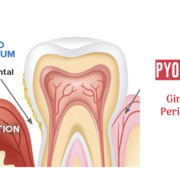Clove oil has long been used as a natural remedy for toothaches, and its medicinal properties have been used to treat a variety of oral ailments. In recent years, it has gained increased attention as a potential solution for reducing dental pain. This article will provide an overview of the benefits of clove oil, explore how it works to reduce dental pain, and provide tips for using this natural remedy for toothaches and other oral pain. By understanding how it can help reduce dental pain, you can better decide if it is the right choice for you.
What is Clove Oil?
It is an aromatic essential oil obtained from clove plants. These plants are a member of the myrtle family and are native to Indonesia and parts of Southern Asia. Clove plants have a long history of use in traditional medicine, both in extract and essential oil form. It contains a variety of active compounds, including eugenol, clove acids, and carvacrol, that give it potent antimicrobial properties.

Clove oil has been used for centuries as a natural remedy for toothaches. It is also effective for treating gum diseases, which often lead to dental pain. Because it is a mild anesthetic, it can temporarily numb the mouth and provide relief from pain. While it is often used in dental procedures, such as fillings and root canals, it can also be used at home to treat common oral pain, such as toothaches and gum pain.
Benefits of Clove Oil For Teeth
Clove oil is a beneficial and potent natural remedy, which has been used to treat a variety of oral issues.

Clove oil has anti-inflammatory properties, which helps to reduce gum inflammation.
Dr. Chirag Chamria
- Relief from Toothaches: Clove oil’s anesthetic properties can numb the pain caused by toothaches, providing temporary relief. Applying diluted clove oil to the affected area can soothe the discomfort.
- Reduces Gum Inflammation: Clove oil’s anti-inflammatory properties help reduce inflammation and swelling in the gums, which can be caused by gingivitis or other gum diseases. Rinsing with diluted clove oil can alleviate gum inflammation.
- Combats Bad Breath: Clove oil’s antibacterial properties can help eliminate the bacteria that cause bad breath. Adding a few drops of clove oil to water and swishing it around in the mouth can freshen your breath.
- Promotes Oral Hygiene: Clove oil’s antibacterial properties can help maintain good oral hygiene by reducing the buildup of plaque and bacteria that contribute to tooth decay and gum disease.
- Soothes Oral Irritations: Clove oil can help soothe oral irritations caused by canker sores, cold sores, or minor injuries to the gums or tongue. Applying diluted clove oil to the affected area can provide relief.
- Natural Alternative to Chemical Mouthwashes: Clove oil can serve as a natural alternative to over-the-counter mouthwashes for those seeking a more natural approach to oral care.
Steps for Applying Clove Oil to Teeth
- Squeeze a few drops of clove oil with 1 teaspoon of olive oil into your dish.
- Soak your swab or cotton ball with the clove oil.
- Gently swipe the swab or ball around the area that is bothering you. Or place the cotton ball over the area.
- Allow the oil to sit for 5 to 10 minutes before it starts working.
- Reapply every 2 to 3 hours for relief.
Is Cloves Good For Toothache
Yes, cloves are a good natural remedy for toothaches. They contain eugenol, which is a natural anesthetic that can numb the pain. Cloves also have anti-inflammatory properties that can help reduce swelling.
To use cloves for a toothache, you can:
1. Chew on a whole clove: This will release the eugenol and numb the pain.
2. Make a clove paste: Mix 1/4 teaspoon of baking soda with 1 drop of clove oil. Make a paste and apply it to the affected area.
3. Use clove oil: Dilute 2-3 drops of clove oil in 1 teaspoon of olive oil. Dip a cotton swab into the diluted oil and apply it to the affected area.
You can repeat any of these methods as needed until the pain subsides.
How Clove Oil Helps Reduce Dental Pain
Clove oil is a strong anesthetic, which means it can temporarily numb the mouth. This means that when applied to the gums, clove oil can reduce the sensation of pain. The antibacterial and antifungal properties of clove oil make it an effective and natural remedy for dental pain.
It can kill the bacteria that cause gum disease and other oral infections, as well as the fungi that lead to tooth decay. This can help to reduce dental pain that is caused by oral infections. The anti-inflammatory properties of it may also help reduce dental pain. When applied to the gums, it can reduce gum inflammation, which often leads to discomfort and swelling. This reduction in pain can make it easier to manage dental pain.
How to Use Clove Oil for Toothaches and Other Oral Pain
It is usually applied directly to the gums for pain relief. This can be done by using a cotton swab (Q-tip) or applicator and applying a few drops of the oil directly to the gum line. The oil will quickly be absorbed by the gums and provide pain relief.
You can also use clove oil as a mouthwash or toothache drops. It can also be used as a mouthwash to treat oral pain. Mix a few drops of clove oil with water and use it as you would a regular mouthwash. You can also use it as a toothache drop. Mix a few drops of it with a few drops of water and place the mixture in a clean dropper. Use the dropper to apply the clove oil to the gum line and teeth.
Conclusion
Clove oil is a potent natural remedy that can help reduce dental pain. It works by killing bacteria and fungi that cause dental infections, as well as by reducing gum inflammation. When applied to the gums, it provides temporary pain relief by numbing the mouth. While clove oil is safe and effective, it is important to note that it is only temporary. It is best to use it in combination with other methods for treating dental pain, such as brushing and flossing regularly and visiting the dentist regularly.






